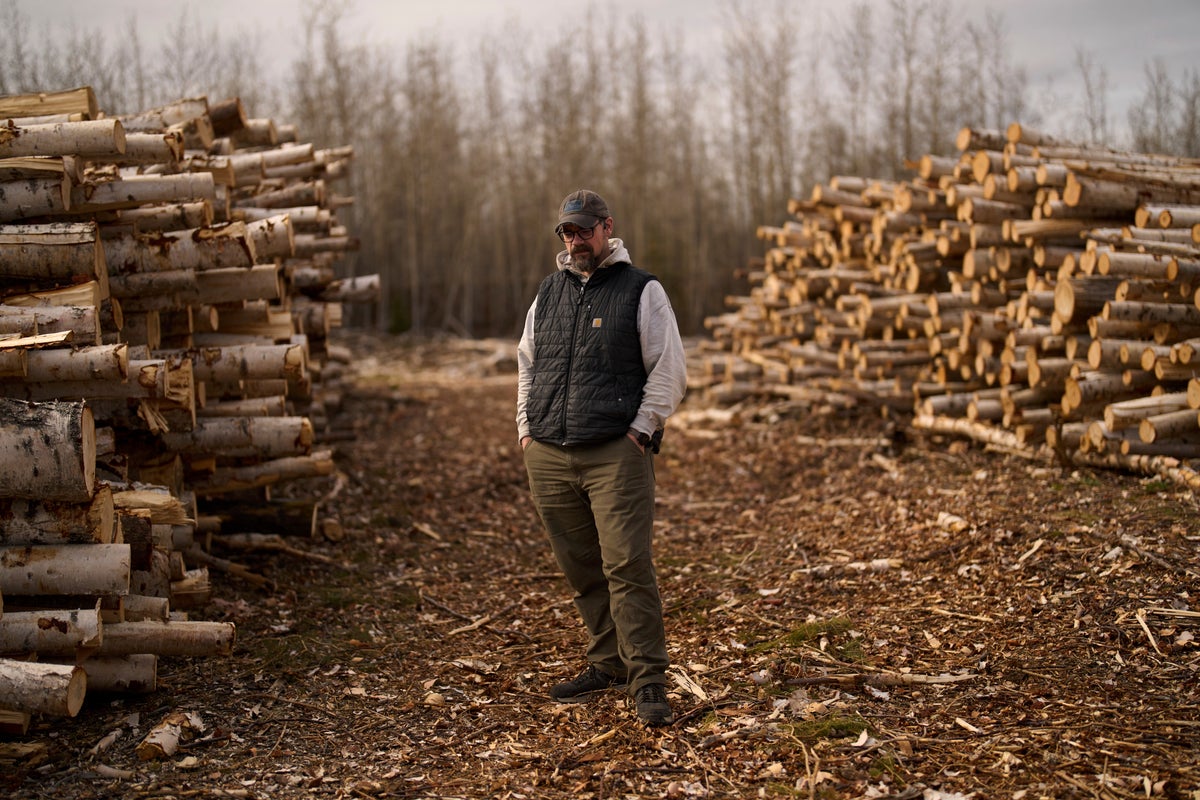In rural central Alaska, a village is in the midst of a clean energy transformation that locals say will boost savings, build resilience and provide jobs. Galena wants to curb its reliance on expensive, imported diesel that when burned is one of the largest contributors of planet-warming emissions.
Nearly 10 years ago, the village started harvesting trees to fuel a biomass plant to heat its bustling boarding school, offsetting about 100,000 gallons (about 380,000 liters) of diesel annually.
The local Louden Tribe is encouraging people to collect floating logs from the Yukon River that can be used for firewood and siding for the sustainable homes they’re building for members. And soon a 1.5-megawatt solar farm will allow the city to turn off its diesel engines and run on 100% clean, renewable energy on sunny summer days, with excess power stored in a battery for later use. That will save another 100,000 gallons annually.
The Associated Press talked to residents about their village’s sustainable and renewable energy projects. Here are some of their reflections:
Tim Kalke, 46, general manager at Sustainable Energy for Galena Alaska
“We’re just ensuring that our critical infrastructure has redundancy and protection built into it, so that every time there’s a power outage, it doesn’t turn into tens of thousands of dollars in repairs in its wake.”
Jade Thurmond, 20, a Galena resident working on the solar farm
“I’m really excited for when we are using it and how we’ll reduce our diesel usage. I think that would be pretty fun to see and to hear about in the future, and see what comes along.”
Jake Pogrebinsky, 54, a sawmill operator for Louden Tribe and driftwood collector
“Instead of having to make money to pay for barge freight or to buy materials, you are spending your time out on the river. For a young person, as a lesson, as a skill-building activity, it cannot possibly be compared to.”
Brad Scotton, 54, a Galena city council member
“What (the biomass plant) has done is stabilize (costs), and it’s created a local workforce and a job base that we never used to have. So it’s keeping the money that used to go outside within the community and providing pretty meaningful jobs for people.”
Will Kramer, 29, an applied mechanics instructor at Galena Interior Learning Academy
“We are just at the whim of whatever somebody else that wants to make all the money off of us is saying and doing. And being able to install and integrate these systems in these communities, it kind of gives the freedom back to the communities.”
Phil Koontz, 74 , a retired environmental engineer for the Louden Tribe
“It would be very hard to live here without outside resources. I see fuel as probably the main outside resource that we use. It provides most of the electricity, it provides most of the transportation, it provides most of the heat. I don’t know what we’re going to do without those things. One of the solutions I see is efficiency, reducing the need for energy to produce the same result, better insulated houses, better vehicles, better energy sources.”
Aaren Sommer, 19, a Galena resident helping install the solar array
The array is “going to reduce the diesel usage a whole bunch over at the power plant, which is going to help us out.”
Pineda reported from Los Angeles.
The Associated Press receives support from the Walton Family Foundation for coverage of water and environmental policy. The AP is solely responsible for all content. For all of AP’s environmental coverage, visit https://apnews.com/hub/climate-and-environment
